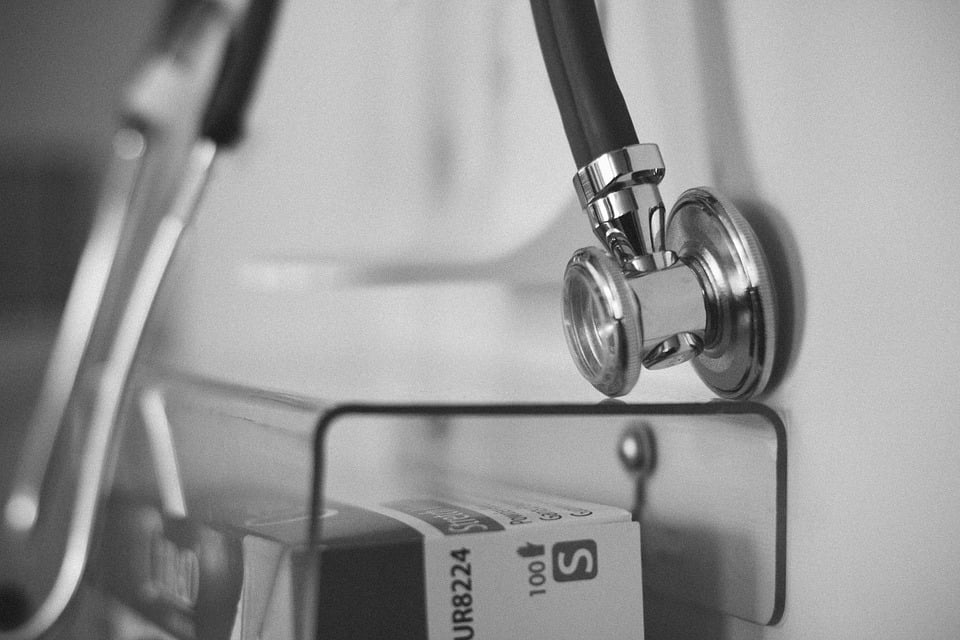Clinical Placement: The Student Experience

Share this step
Students are exposed to clinical teaching from early on in Glasgow and the integrated nature of the course ensures the students spend an increasing amount of time in clinics as they progress through the course. Therefore, it is important to get maximum from learning opportunities the placements offer and knowing what to expect will hopefully aid you in this process.
Jack Maybury, a Year 4 student at Glasgow, has written an article we hope will be of great benefit to all aspiring medical students.
Take your kids to work day…
So, you are applying/have already got in to medical school! Congratulations! Here marks the first step in your long but ever-exciting medical journey and here is some advice from me to help you along the way.
My name is Jack and I’m 21 years old. Like most of you, I started my medical school journey straight from school (with an even more baby face than now) and was excited and terrified of what to expect over the coming year.
Now, 4 years in I can assure you that the butterfly feeling never actually goes away but that same feeling is why I’m still here studying the degree. Medicine is hard, medicine is long, but studying medicine is one of the best parts of my life and something that I am – and you will be too – so proud to be a part of.
What is ‘placement’ anyway?
As I’m sure you are well aware, being a doctor involves a lot of patient interaction, and no matter how much you study in the library, the only way to truly become a good communicator is in a clinical context. This may be on the wards, in a GP practice, or even in an outpatient clinic, and luckily for you, these opportunities start from year 1 of medical school in Glasgow.
Admittedly the number of placements you have in year 1 is small but it is important to start off with ‘baby steps’ as to make the most of clinical placement one needs to have some level of clinical knowledge. As you progress through medical school and your knowledge level increases, the number of placements you have also rises. The most important thing for year 1 is to observe – watch how doctors interact, reflect on what they do well and reflect on what they do (not so) well. That doesn’t mean you can’t get involved, certainly talk to patients and ask as many questions as there is time for. This is your time to start learning what the reality of being a doctor is like.
What should I do before I go?
In year 1 and 2 the main goals of clinical placement are learning how to take a good patient history and starting to learn the basics of different types of examination. In the lead up to a placement there will often be links/videos/documents put up for prior learning. It is important to remember that whoever is taking care of you whilst you are on placement is giving up their own time to teach you so I can’t stress enough how important it is to look over the provided resources before you go. Don’t worry – no one expects you to be a fully qualified doctor when you attend – but they do expect you to look over what is provided so that it isn’t a waste of your time or theirs. A good learning resource that I’m certain you will come across is ‘Geeky Medics’ – this website has excellent videos and tutorials about taking a good history and what each examination involves. Year 1 is very much about the BASICS so don’t panic if you hear medical words that don’t yet make sense – go off of what the university and your tutor provide you with and do a little reading around if you wish.
What should I wear?
So, this is an aspect of medical school that everyone thinks too much about. All I can say is wear smart clothes that you would expect of a doctor. As an example, I typically wear a short-sleeved shirt tucked in to suit-type trousers with black/brown leather shoes.
If you ever question if what you are wearing is appropriate or not, it probably means it isn’t. It’s okay to wear ‘nice’ clothes but just make sure that your clothes wouldn’t cause offence to anyone and don’t attract attention away from the patient. Some important rules do apply:
•Bare below the elbow – shirts should be short-sleeved or rolled up to above the elbow
•No watches or excessive jewellery
•No ties
•Hair has to be tied back if long
•Don’t wear jeans
Whilst it can mean having to buy some new clothes, the rules are important to prevent the spread of infection and to avoid any questions being raised about your professionalism. But don’t worry, if in doubt just ask someone in the years above for advice!
What should I do on placement?
The best way to make the most of your placement is to be present – and by that I don’t just mean attend, I mean be engaged. As you will quickly learn, the doctors that are most liked by patients are not necessarily the ones who know the most, but actually the ones who interact with the patient the best. As I mentioned, becoming a good doctor relies upon more than studying in the library, as communication skills can’t be taught and have to be learned. When you go to placement you will usually be in small groups of 2-8 so it acts as a perfect opportunity for you to ask as many questions as you like in a relaxed environment and watch how the doctors interact with patients. Often you will get the chance to assist in the examination of patients, so always take your stethoscope so you can learn what normal breath and heart sounds sound like (so that you can understand what abnormal sounds like in later years). It is also a good idea to take a pen and a notepad so that you can write down some useful information whilst you are there – but remember not to write down everything as the main reason you are there is to DO things. It might feel scary but you WILL find your feet and it just takes a little while to settle in. All the doctors have been in your position and at this stage they only really expect you to attend and engage with them.
What should I do after placement?
After a long day of placement it can be good to reflect upon anything you have learned. You will usually be told what the ‘aims’ of your placement are before you go so take a little bit of time to think about if you have met the objectives – the doctors are expected to reflect regularly on what they do, so this gives you a good introduction to practice. This might involve some notes on history taking so that you have something to come back to when you (inevitably) forget the details later on.
An important point for me to make is to take care of yourself. Sometimes we can come across things on placement which are distressing and which upset us. If something particularly upsets a student, it is a good idea to let the tutor know, contact the medical school, or speak to someone. The medical school has a duty of care towards its students and always takes emotional issues seriously. Students are not expected to deal with everything on their own and staff are happy to offer advice and support to those who struggle.
Coursework and placement
In year 1, there will be some summative coursework linked to your placements. This involves a ‘Life History Project’ as well as a ‘Community Diagnosis Project’. These are summatively marked coursework assignments that will be recorded on your transcript, but I won’t go in to the ins-and-outs of them because you will be given lots of information about them during year 1. Both of these projects are related to GP placements that you will attend during year 1 and aim for you to develop a greater understanding of what it is like for someone to live with a chronic health condition, and also to understand the many factors that affect someone’s health e.g. financial, social, political, etc.
General tips that I can give you for tackling these are:
•Attend – the best way to get the most information for these projects is to make sure you attend placement. Much of the information you need will come from patients so make sure you don’t miss out.
•Start early – it can be easy to put off coursework until the last minute but the people who get the best grades are those who start early and chip away at coursework as this means you have more time and less stress!
•Follow the guidance carefully – the guidance for the coursework tells you exactly what you need to do, stick to word counts and stick to the different headings.
•Speak to senior students – if you ever need some tips or advice about coursework or indeed any aspect of the course, just ask, everyone is happy to guide!
Last but not least – ENJOY YOURSELF! All the hard work you put in over the past couple of years has paid off and you’ve made it into medical school. Keep working hard, and enjoy yourself as you go along. The first few weeks/months can be scary but I promise you that it will all be okay in the end. Sometimes change IS scary (and it really was for me) but I stuck at it and I’ve made it to year 4 now. Time will fly by, so make the most of medical school and the university. Put time aside to study, but most importantly put time aside for you to do whatever makes you happy. You will make some friends for life, learn so much, and be happy that have chosen the best career path in the world to go down.
Share this
Study Medicine: Applying for Medical School and Becoming a Medical Student

Study Medicine: Applying for Medical School and Becoming a Medical Student


Reach your personal and professional goals
Unlock access to hundreds of expert online courses and degrees from top universities and educators to gain accredited qualifications and professional CV-building certificates.
Join over 18 million learners to launch, switch or build upon your career, all at your own pace, across a wide range of topic areas.
Register to receive updates
-
Create an account to receive our newsletter, course recommendations and promotions.
Register for free







